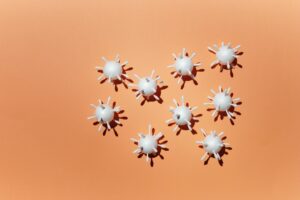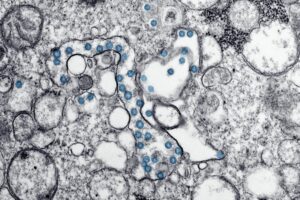Why Stress Causes Erectile Dysfunction and How to Fix It

Photo by Karola G on <a href="https://www.pexels.com/photo/crop-unrecognizable-male-doctor-with-stethoscope-4021775/" rel="nofollow">Pexels.com</a>
The Stress-Erectile Dysfunction Connection: Understanding the Physiological Link
How Your Body’s Stress Response Affects Sexual Function
When stress hits, your body activates what scientists call the “fight-or-flight” response – an ancient survival mechanism designed to help our ancestors escape predators or fight threats. While this response was perfect for avoiding lions on the savannah, it’s terrible for your bedroom performance.
Your brain doesn’t distinguish between a work deadline and a dangerous animal – it triggers the same physiological cascade. When stressed, your adrenal glands pump out cortisol and adrenaline, hormones that prepare your body for emergency action.
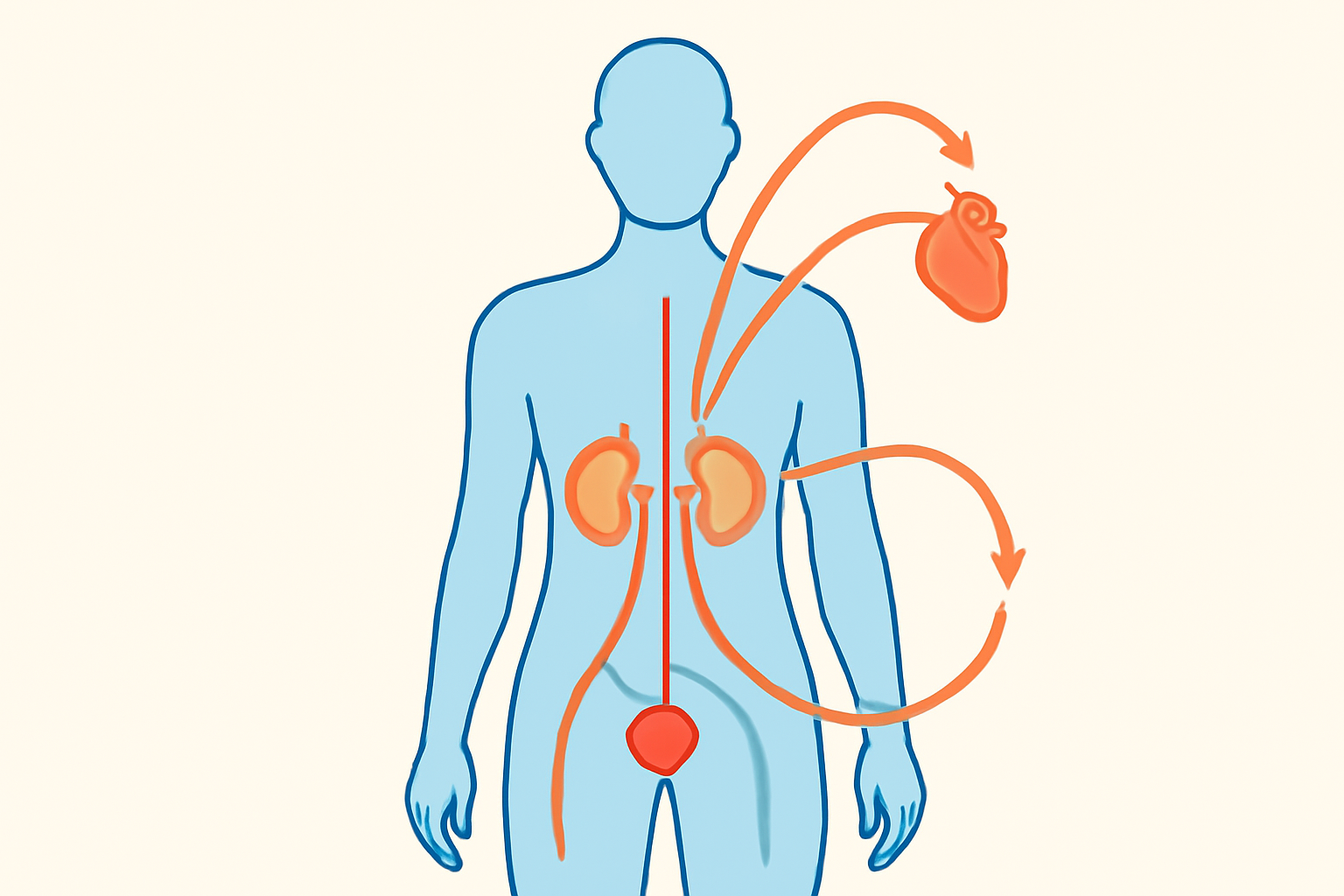 Blood vessels constrict to direct blood to vital organs and large muscles, heart rate increases, and your digestive and reproductive systems take a backseat.
Blood vessels constrict to direct blood to vital organs and large muscles, heart rate increases, and your digestive and reproductive systems take a backseat.
This redirection of blood flow is particularly problematic for erectile function, which relies heavily on robust blood circulation to the genital area. Simply put, stress hormones steal blood from where it’s needed for an erection and send it elsewhere. Research shows that chronically elevated cortisol levels can also suppress testosterone production, further undermining sexual performance.
Your autonomic nervous system – which controls bodily functions you don’t consciously direct – plays a crucial role here. Sexual arousal depends on the parasympathetic (“rest-and-digest”) branch being activated, while stress triggers the sympathetic (“fight-or-flight”) branch. These systems operate like opposing teams – when one’s winning, the other loses ground.
Psychological vs. Physical Erectile Dysfunction: Identifying Stress-Related ED
Erectile dysfunction comes in two main varieties – organic (physical) and psychogenic (psychological). Knowing the difference helps determine the right approach to addressing your erectile issues.
Organic ED typically develops gradually and consistently affects all forms of erection (including morning erections and masturbation). It’s often linked to underlying health conditions like diabetes, heart disease, or hormonal imbalances.
Stress-related erectile dysfunction, however, tends to appear suddenly and situationally. You might notice you can achieve erections during masturbation but struggle during partner sex, or that your erectile function varies considerably depending on your stress levels. Medical literature indicates that psychogenic factors contribute to 40% of erectile dysfunction cases.
Perhaps the cruelest aspect of stress-induced ED is the performance anxiety cycle. One unsuccessful sexual encounter creates worry about the next attempt, generating more stress, which further increases the likelihood of erectile difficulties.
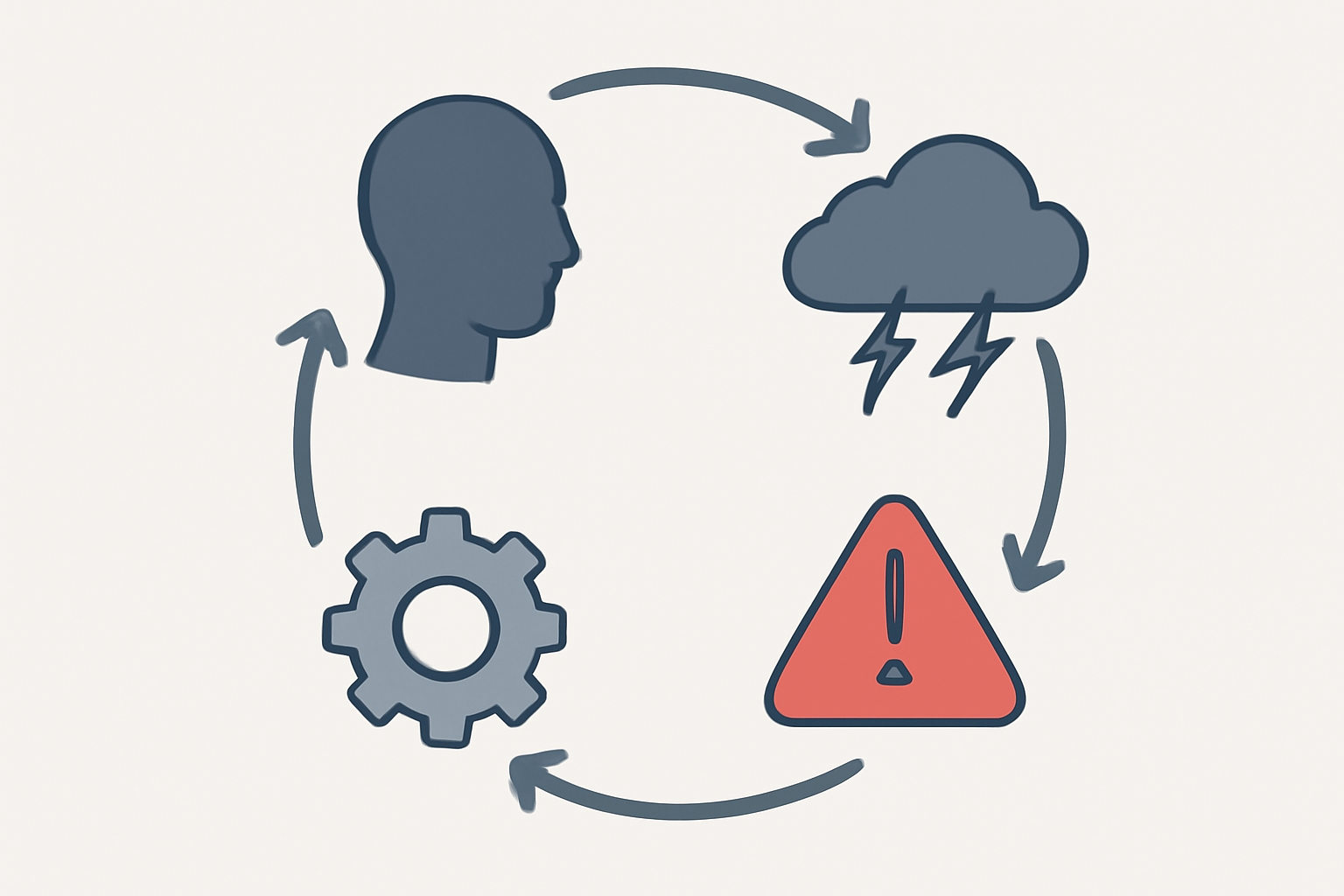 This self-perpetuating loop can transform temporary erectile issues into chronic problems.
This self-perpetuating loop can transform temporary erectile issues into chronic problems.
Common Stressors That Impact Sexual Performance
Several everyday stressors frequently contribute to erectile dysfunction:
Work pressures often follow you home, with deadline anxiety, workplace conflicts, and career uncertainties dampening desire and sexual responsiveness. Financial worries similarly activate stress pathways that interfere with relaxation and arousal.
Relationship tensions create a double-whammy effect – not only triggering the physiological stress response but also creating emotional distance between partners. Unresolved conflicts and poor communication can make it difficult to feel safe and connected during intimate moments.
Modern life adds its own stressors. Health experts point to digital overload and poor sleep quality as hidden contributors to erectile dysfunction. The constant notifications, blue light exposure, and 24/7 work culture disrupt your body’s natural rhythms and keep stress hormones elevated.
When Erectile Dysfunction Might Signal Other Health Issues
While stress is a common culprit, sometimes erectile dysfunction serves as an early warning sign for other conditions. If you experience sudden, complete inability to achieve erections in any context, or if erectile issues coincide with other troubling symptoms, it’s time to consult a healthcare provider.
Pay particular attention if you’re experiencing chest pain, shortness of breath, or extreme fatigue alongside erectile difficulties. Harvard Medical School researchers have established that erectile dysfunction often precedes cardiovascular disease by 3-5 years, as the smaller blood vessels in the penis show damage before larger arteries.
Depression and anxiety disorders frequently manifest with sexual symptoms, including erectile dysfunction. These conditions share common physiological pathways with stress responses and may require professional treatment beyond stress management techniques.
Effective Strategies to Overcome Stress-Induced Erectile Dysfunction
Stress Management Techniques Proven to Improve Sexual Health
If stress is undermining your sexual performance, mindfulness meditation can be remarkably effective. Set aside 10-15 minutes daily to practice mindfulness specifically targeting sexual anxiety. Focus on bodily sensations without judgment, gradually extending this awareness into intimate moments. Research shows that regular mindfulness practice can significantly reduce performance anxiety and improve erectile function.
Don’t let low flow slow you down — see what Nitric Boost Ultra can do.
Progressive muscle relaxation offers another powerful approach to combat erectile issues. This technique involves tensing each muscle group for 5-10 seconds before releasing. Start at your feet and work upward, paying special attention to your pelvic floor muscles. Practice this method 20 minutes before anticipated sexual activity to reduce physical tension that inhibits arousal.
Deep breathing exercises directly activate your parasympathetic nervous system—the counterbalance to your stress response. Try the 4-7-8 technique: inhale for 4 counts, hold for 7, and exhale for 8. This simple practice shifts your body out of fight-or-flight mode and creates the relaxed state necessary for healthy erectile function.
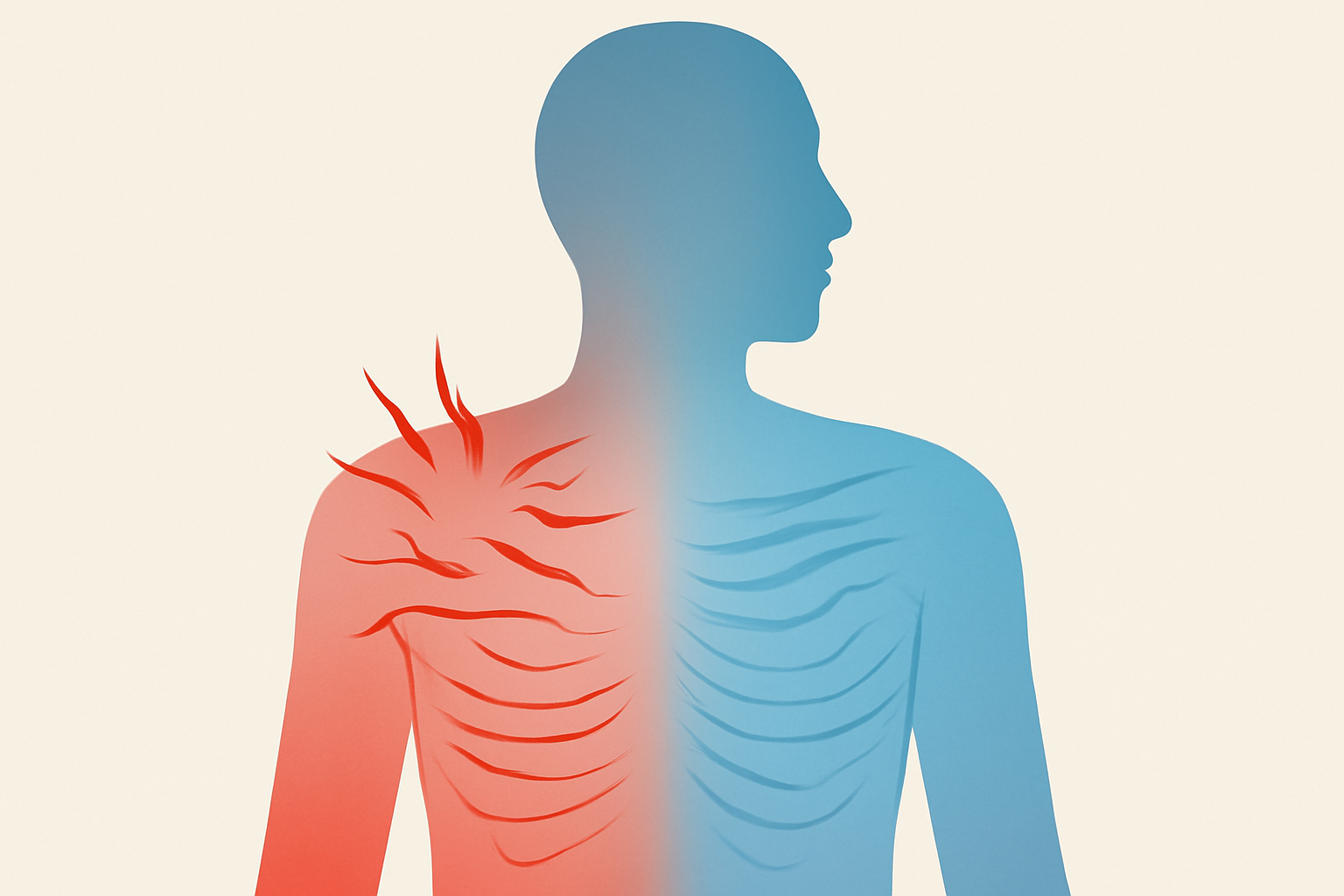
Don’t underestimate the power of regular physical exercise. Just 30 minutes of moderate activity most days can dramatically lower stress hormones while improving circulation to all parts of your body—including your penis. Strength training and cardiovascular exercise both boost testosterone levels and reduce cortisol, creating an optimal hormonal environment for stronger erections.
Lifestyle Adjustments That Support Erectile Function
Sleep quality profoundly impacts your sexual health. During deep sleep, your body produces testosterone essential for erectile function. Aim for 7-8 hours of uninterrupted sleep by establishing a consistent bedtime routine, keeping your bedroom cool (65-68°F), and avoiding screens an hour before bed. Studies confirm that men with poor sleep have significantly lower testosterone levels.
Your diet directly affects blood flow and stress levels.
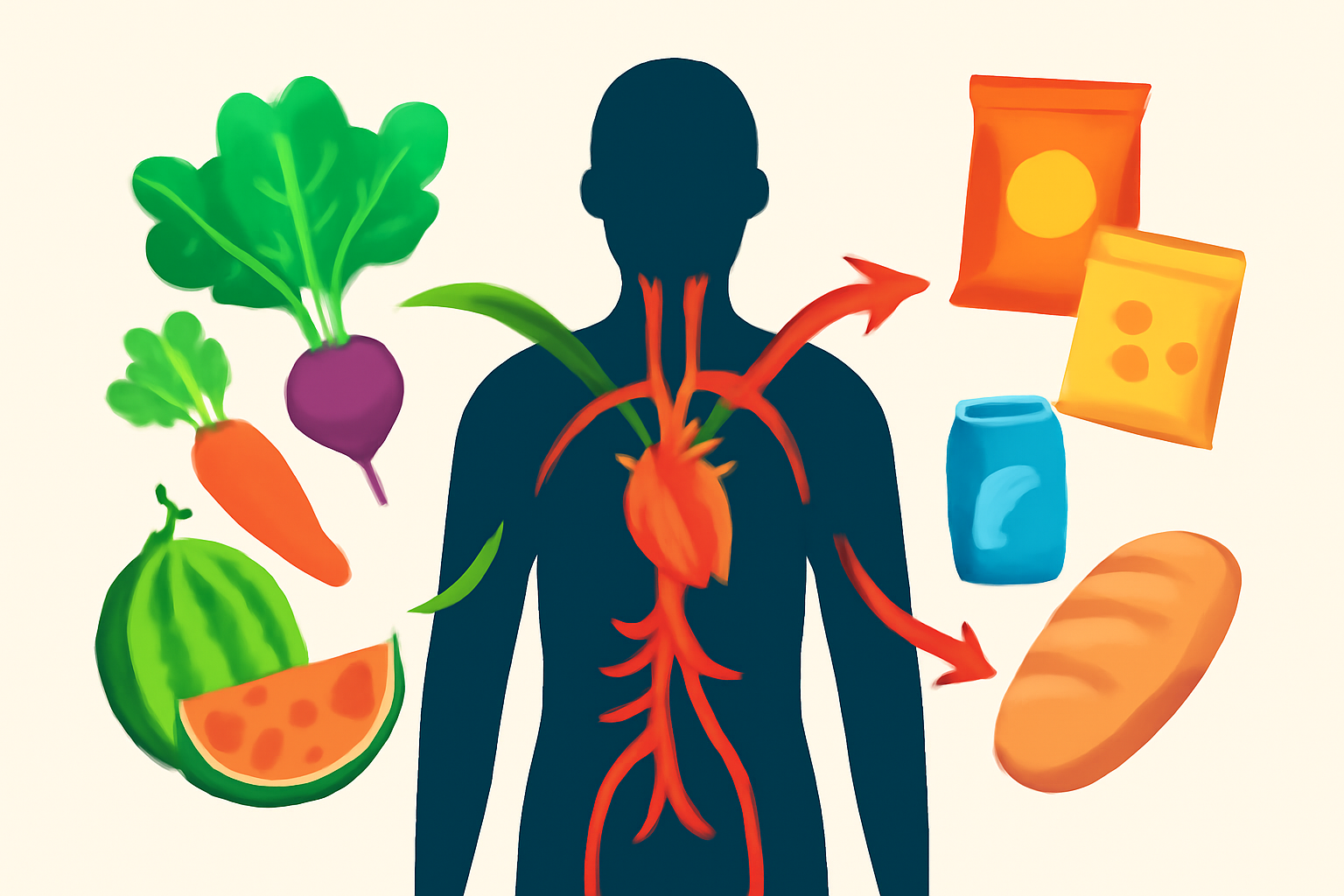 Increase consumption of nitric oxide-boosting foods like beets, leafy greens, and watermelon, which enhance blood vessel dilation. Reduce inflammatory foods such as processed meats and refined carbohydrates that contribute to erectile dysfunction remedies.
Increase consumption of nitric oxide-boosting foods like beets, leafy greens, and watermelon, which enhance blood vessel dilation. Reduce inflammatory foods such as processed meats and refined carbohydrates that contribute to erectile dysfunction remedies.
You don’t have to accept a slow decline. Rev up your blood flow and performance with Nitric Boost Ultra and feel the difference in and out of the gym.
Moderate your alcohol intake—while one drink might help you relax, more than two can significantly impair erectile function. Similarly, smoking restricts blood flow to the penis, making it a primary contributor to persistent erectile issues.
Creating better work-life boundaries helps manage chronic stress. Try time-blocking techniques, setting clear “off” hours, and prioritizing recovery time. Even short breaks throughout your workday can reset your stress response system.
Communication Strategies for Reducing Performance Anxiety
An honest conversation with your partner about erectile dysfunction can transform your experience. Choose a neutral, non-sexual moment to share your concerns using “I” statements rather than blaming language. Most partners respond with understanding when approached openly.
Work together to establish realistic expectations. Recognize that not every sexual encounter needs to include an erection or penetration. Sexual health experts recommend occasional “pleasure-focused” sessions where orgasm isn’t the goal, removing performance pressure.

